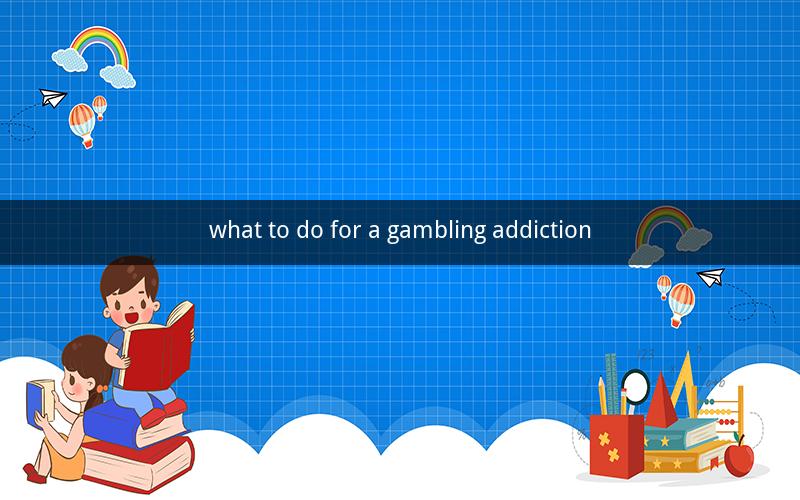
Contents
1. Understanding the Problem
2. Recognizing the Signs of a Gambling Addiction
3. Seeking Professional Help
4. Building a Support System
5. Coping with Financial Implications
6. Developing Healthy Habits
7. Overcoming Psychological Challenges
8. Legal and Ethical Considerations
9. Community Resources and Support
10. Maintaining Sobriety and Long-Term Recovery
1. Understanding the Problem
Gambling addiction is a serious issue that can have far-reaching consequences on an individual's life. It is characterized by an inability to control or stop gambling, despite the negative impacts it may have on one's financial, social, and personal well-being. Recognizing the signs and understanding the root causes of gambling addiction is the first step towards addressing and overcoming this problem.
2. Recognizing the Signs of a Gambling Addiction
Some common signs of a gambling addiction include:
- Compulsive Behavior: Feeling driven to gamble, despite negative consequences.
- Financial Problems: Borrowing money, selling personal items, or using credit cards to finance gambling.
- Social Consequences: Isolation from family and friends, neglecting work or school responsibilities, and losing interest in activities once enjoyed.
- Physical Symptoms: Tension, irritability, insomnia, and other stress-related symptoms.
3. Seeking Professional Help
A gambling addiction is a treatable condition. Professional help, such as therapy, counseling, and support groups, can be invaluable in overcoming this problem. Therapists can provide tailored treatment plans, while support groups offer a sense of community and understanding for those struggling with addiction.
4. Building a Support System
Support from family and friends can make a significant difference in the recovery process. Encourage loved ones to learn about gambling addiction and how they can help. Building a support system may also involve seeking guidance from religious or spiritual leaders, joining self-help groups, or finding a mentor who has successfully overcome a gambling addiction.
5. Coping with Financial Implications
Dealing with the financial consequences of gambling addiction is an essential aspect of recovery. This may involve developing a budget, seeking financial counseling, and creating a plan to repay debts. Setting goals and celebrating small milestones can help maintain motivation and progress.
6. Developing Healthy Habits
Engaging in healthy activities can distract from the urge to gamble and promote overall well-being. Examples include exercise, hobbies, meditation, and socializing. Establishing a daily routine that includes these activities can help keep gambling thoughts at bay.
7. Overcoming Psychological Challenges
Gambling addiction often involves psychological factors, such as the need for excitement, escape, or validation. Understanding and addressing these underlying issues is crucial for long-term recovery. Cognitive-behavioral therapy (CBT) and other forms of therapy can help identify and modify these factors.
8. Legal and Ethical Considerations
In some cases, gambling addiction may lead to legal issues, such as fraud, theft, or embezzlement. It is essential to address these concerns promptly and seek legal advice if needed. Additionally, individuals should consider the ethical implications of their actions, such as the harm caused to family and friends.
9. Community Resources and Support
There are many community resources and support groups available to those struggling with gambling addiction. These may include counseling services, financial counseling, and support groups such as Gamblers Anonymous. Researching and accessing these resources can be a valuable part of the recovery process.
10. Maintaining Sobriety and Long-Term Recovery
Recovery from a gambling addiction is an ongoing process. Maintaining sobriety requires dedication, commitment, and resilience. This involves continuing to engage in therapy, support groups, and healthy habits, as well as being mindful of potential triggers and maintaining open communication with loved ones.
Frequently Asked Questions
1. What are the warning signs of a gambling addiction?
2. Can gambling addiction be treated?
3. How can I help a loved one struggling with a gambling addiction?
4. Are there medications that can help treat gambling addiction?
5. What role do support groups play in recovery?
6. How can I create a budget to manage my finances during recovery?
7. Can I recover from a gambling addiction if I have already committed a crime?
8. How can I cope with the emotional stress of gambling addiction?
9. Are there online resources for those struggling with a gambling addiction?
10. What should I do if I relapse after overcoming a gambling addiction?
In conclusion, overcoming a gambling addiction requires a multi-faceted approach that addresses the various aspects of the problem. By seeking professional help, building a support system, and maintaining a healthy lifestyle, individuals can successfully navigate the challenges of recovery and lead a fulfilling life free from the grasp of addiction.